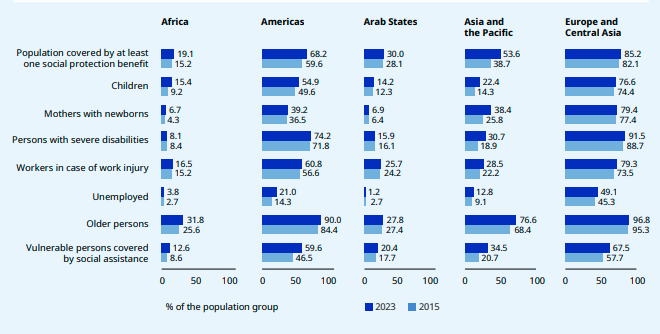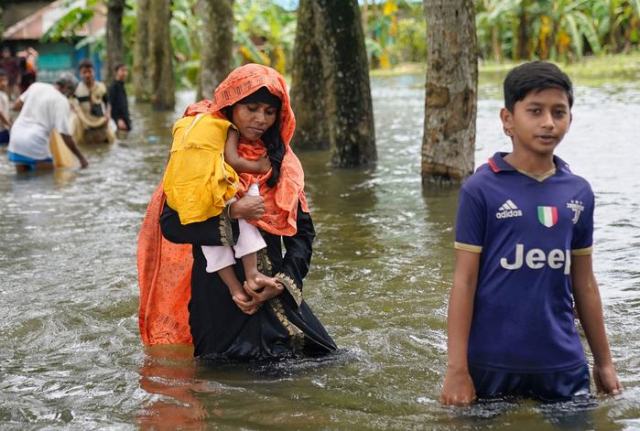A new report from the International Labour Organization (ILO) highlights a grim reality: half of the global population is without social protection, and those living in climate-vulnerable countries are the most affected.
The World Social Protection Report 2024-26: Universal Social Protection for Climate Action and a Just Transition reveals that 3.8 billion people worldwide lack any form of social safety net, including 1.8 billion children.
Financing gaps in social protection are large. Low- and middle-income countries require an additional $1.4 trillion investment or 3.3 percent of the aggregate GDP (2024) of these countries per annum to guarantee at least a basic level of social security. Low-income countries need to invest an additional $308.5 billion per year, equivalent to 52.3 percent of their GDP for social security.
ILO Director-General Gilbert Houngbo has emphasized that the climate crisis, which transcends borders, poses the greatest threat to social justice today. “Climate change does not recognize borders, and we cannot build a wall to keep the crisis out,” he said.

While over 50 percent of the global population now has access to at least one social protection benefit, the report finds that in the 20 most climate-vulnerable countries, 91.3 percent of people — roughly 364 million — lack coverage. Globally, 75 percent of the population in the 50 most climate-vulnerable countries are without protection.
Gender gaps in legal and effective coverage are substantial. Women’s effective coverage of 50.1, for at least one social protection benefit, lags behind men’s 54.6 percent. Only 33.8 percent of the working-age population is legally covered by comprehensive social security systems.
Mia Seppo, ILO Assistant Director-General, stressed that this disparity highlights a “deeply divided world,” with those on the front lines of the climate crisis facing the most pressing need for social protection.
The report argues that social protection systems can play a vital role in mitigating the effects of climate-related shocks, such as providing income security and access to healthcare. Social protection also facilitates a just transition to greener economies by supporting training and employment in low-carbon sectors.
The ILO report underscores that governments are not making full use of social protection’s potential. Persistent gaps in coverage and underinvestment — especially in low-income countries — hinder progress.
While high-income countries spend an average of 16.2 percent of their GDP on social protection, low-income countries invest only 0.8 percent. Many of the world’s most climate-vulnerable nations need an additional $308.5 billion annually to achieve even basic coverage.
The ILO calls for urgent policy action to close these gaps, emphasizing the need for increased investment and external support to ensure social protection systems can address both routine risks and climate-related shocks.
Baburajan Kizhakedath

